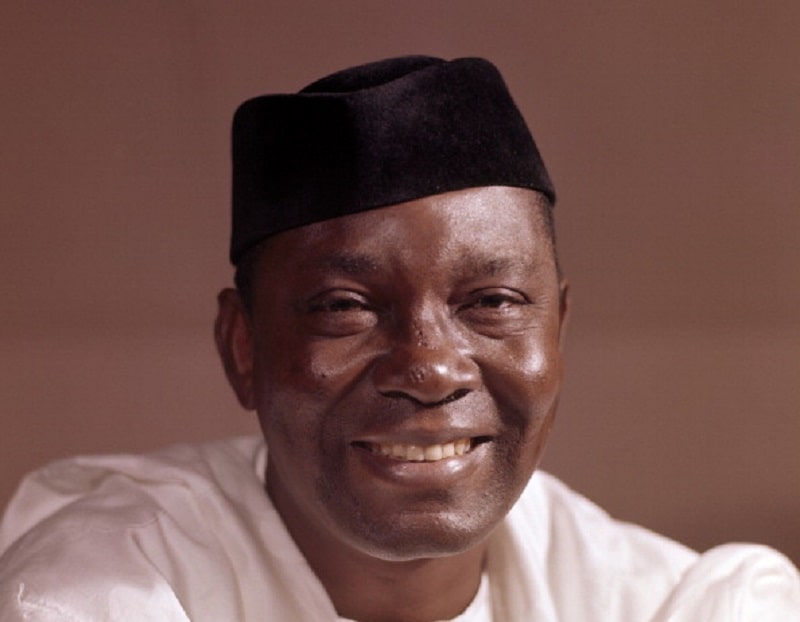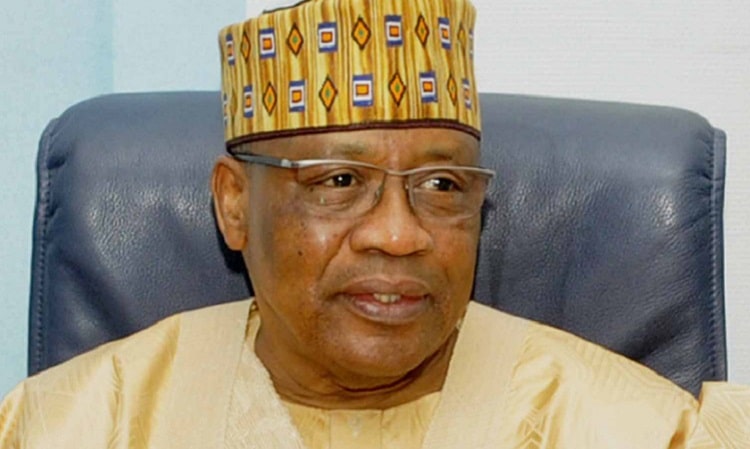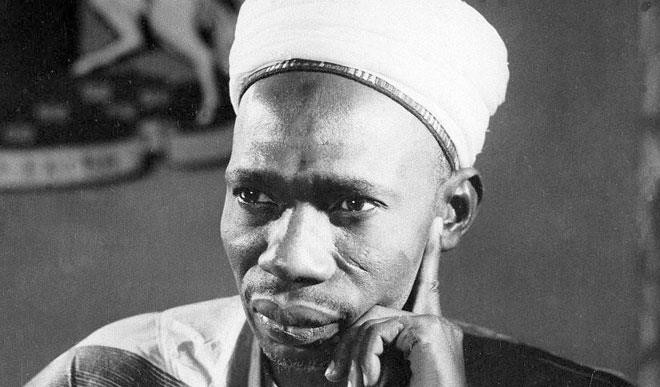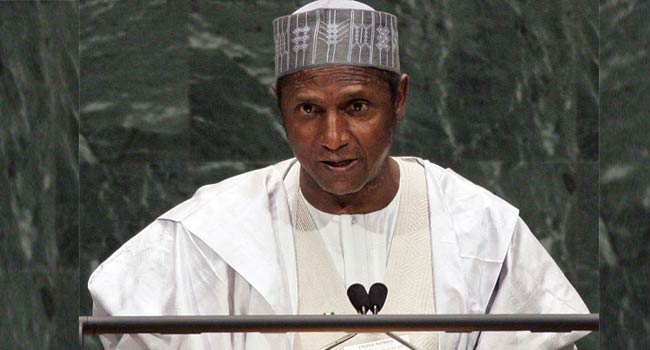President Olusegun Obasanjo (Former President – (1999-2007)
President Olusegun Obasanjo - 12th president of Nigeria
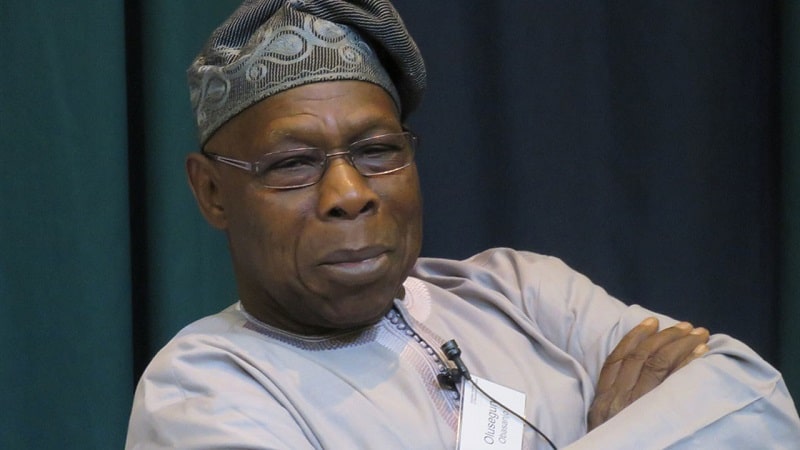
Chief Olusegun Obasanjo is a former Nigerian military ruler and civilian president who served as the head of state of Nigeria from 1999 to 2007.
| List | President’s Information |
| Name | Olusegun Aremu Obasanjo |
| Date of Birth | Mar 5, 1937 |
| Age | 86 (as of 2023) |
| Ancestral Home | Abeokuta, Nigeria |
| Native Language | Yoruba |
| School Attended | Baptist Boys’ High School, Abeokuta, Nigeria; Royal Military Academy Sandhurst, UK |
| Career & Occupation | Military Officer, Politician |
| Height | Approximately 1.83 meters |
| Known As | OBJ, Baba Africa |
| Citizenship | Nigerian |
| Residence | Abeokuta, Ogun State, Nigeria |
| Religion | Christianity |
| Wife’s Name | Stella Obasanjo (deceased), Bola Obasanjo |
| Children’s Name | Iyabo, Olusegun, Gbenga, and others |
| Head of State | Feb 13, 1976 – Oct 1, 1979 (3 years) |
| Assumed Presidential Office | May 29, 1999 |
| Left Presidential Office | May 29, 2007 (8 years in office) |
| Political Party | People’s Democratic Party (PDP) |
Obasanjo’s Early Life and Military Career
Olusegun Obasanjo was born on March 5, 1937, in Abeokuta, Nigeria. He joined the Nigerian Army in 1958 and received his military training in Nigeria and the United Kingdom. Obasanjo served in various military capacities, including as a platoon commander, company commander, and battalion commander. He also served as the Director of Army Signal Corps and as a United Nations peacekeeper in the Congo and in Lebanon.
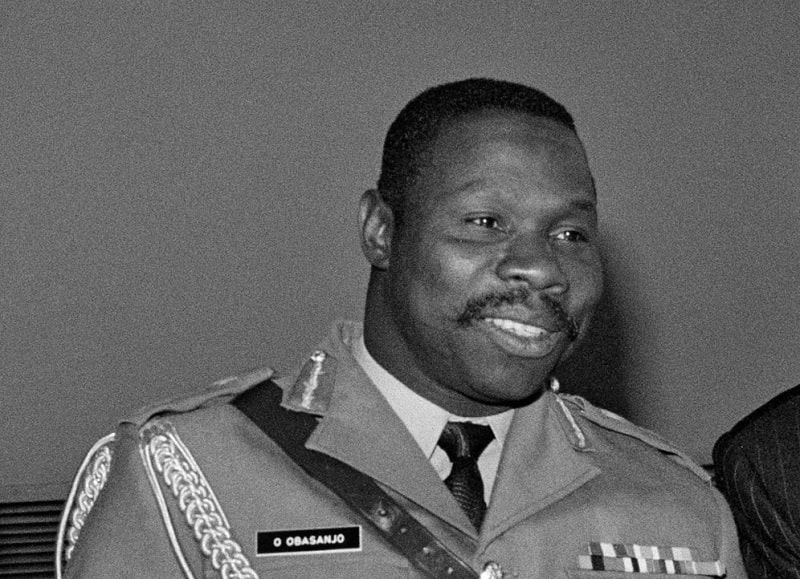
Obasanjo As Head of State (1976 -1979)
Following the assassination of General Murtala Mohammed in February 1976, Olusegun Obasanjo became the Head of State of Nigeria. Obasanjo was a significant figure in Nigerian history, and his tenure as Head of State from 1976 to 1979 was marked by significant achievements in infrastructure development, education, and foreign policy. His government’s efforts to address corruption and abuse of power set an important precedent for future leaders, and his commitment to democracy and the rule of law laid the foundation for Nigeria’s transition to civilian rule.
Obasanjo’s Achievements in Office
Obasanjo’s tenure in office was marked by significant achievements in the areas of infrastructure development, education, and foreign policy. His government launched several ambitious projects, including the construction of new roads, bridges, and airports, and the establishment of new universities and technical colleges.
Obasanjo also pursued an active foreign policy, seeking to promote Nigeria’s influence on the global stage. He played a leading role in the formation of the Economic Community of West African States (ECOWAS) and worked to promote peace and stability in the region.
Obasanjo’s government also took steps to address corruption and abuse of power. Several high-ranking officials were prosecuted for corruption, and the government introduced new measures to improve transparency and accountability in government.
Obasanjo’s Transition to Civilian Rule
Obasanjo’s government also oversaw the transition to civilian rule in Nigeria, culminating in the 1979 presidential election. Obasanjo stepped down as Head of State and handed over power to the newly elected civilian president, Shehu Shagari.
President Olusegun Aremu Obasanjo (1999-2007)

Obasanjo became Nigeria’s first civilian president and the 12th president of Nigeria in over a decade after winning the presidential election in 1999 and Atiku Abubakar served with him as the vice president of Nigeria. His presidency was marked by significant reforms in various sectors of the Nigerian economy, including education, healthcare, and infrastructure. He also oversaw significant improvements in Nigeria’s foreign relations, particularly with the United States and the United Kingdom.
During his presidency, Obasanjo implemented a series of anticorruption measures, including the creation of the Economic and Financial Crimes Commission (EFCC). The EFCC was tasked with investigating and prosecuting cases of corruption, and its establishment was seen as a significant milestone in Nigeria’s fight against corruption.
Obasanjo’s Legacy (1999-2007)
Obasanjo’s legacy as a political figure in Nigeria is multifaceted. Obasanjo’s anticorruption measures were seen by many as politically motivated, and his administration was accused of using the EFCC to target political opponents. His handling of several key political crises, including the Niger Delta crisis and the sectarian violence in Jos, has also been criticized.
Despite these controversies, Obasanjo remains one of Nigeria’s most prominent political figures, and his contributions to Nigeria’s political and economic development are widely recognized. In recognition of his contributions, he has received numerous awards and honors, both within Nigeria and internationally.
Books Written By Obasanjo
Olusegun Obasanjo is a prolific author with numerous publications spanning various subjects. Below are some of his notable works:
| No. | Book Name | Description | Publication Year |
|---|---|---|---|
| 1 | My Command | An account of the Nigerian Civil War (1967–1970) from Obasanjo’s perspective, detailing his experiences and leadership during the conflict. | 1980 |
| 2 | Nzeogwu | A biography of Major Chukwuma Kaduna Nzeogwu, offering insights into his life and role in Nigeria’s first military coup. | 1987 |
| 3 | Not My Will | An autobiography that delves into Obasanjo’s personal life, military career, and his tenure as Nigeria’s head of state. | 1990 |
| 4 | This Animal Called Man | A philosophical reflection on human nature, morality, and societal values. | 1999 |
| 5 | My Watch (3 Volumes) | A comprehensive three-volume memoir covering his early life and military career, political and public affairs, and reflections on Nigerian and global events. | 2014 |
| 6 | Making Africa Work: A Handbook | Co-authored with Greg Mills, Jeffrey Herbst, and Dickie Davis, this book provides strategies for economic growth and development across the African continent. | 2017 |
| 7 | The Asian Aspiration | Analyzes the economic successes of Asian countries and discusses lessons that Africa can learn to achieve similar progress. | 2020 |
| 8 | Democracy Works | Examines the state of democracy in Africa and proposes ways to strengthen democratic institutions and governance. | 2019 |
| 9 | Africa in Perspective | A collection of essays discussing various myths and realities surrounding the African continent. | 1991 |
| 10 | The Art of Leading: Unconventional Wisdom from the Bible | this book offers leadership insights drawn from biblical teachings. | 2024 |
Would you like more details or additional books?
Additional Facts About Obasanjo
- Obasanjo attended the Nigerian Military Training College in Kaduna and the Mons Officer Cadet School in Aldershot, England.
- He first became Nigeria’s Head of State as a military ruler from 1976 to 1979, following the assassination of General Murtala Muhammed.
- Obasanjo is credited with successfully handing over power to a civilian government in 1979, marking the end of military rule at that time.
- He was the first Nigerian military leader to voluntarily relinquish power to a civilian government.
- Obasanjo was imprisoned for three years (1995-1998) by the regime of General Sani Abacha on charges of plotting a coup.
- He was elected as Nigeria’s President in 1999 and re-elected in 2003, serving until 2007.
- His administration implemented various economic reforms, including the privatization of state-owned enterprises and banking sector reforms.
- Under his leadership, Nigeria secured significant debt relief from the Paris Club, reducing the national debt burden.
- Obasanjo established the Economic and Financial Crimes Commission (EFCC) and the Independent Corrupt Practices Commission (ICPC) to combat corruption.
- His government focused on agricultural development and food security initiatives.
- Obasanjo’s tenure saw the liberalization of the telecommunications sector, leading to the mobile phone boom in Nigeria.
- His attempt to amend the constitution to allow for a third term was met with widespread opposition and ultimately failed.
- He has written several books, including “My Command: An Account of the Nigerian Civil War” and “My Watch,” an autobiographical account of his life and career.
- Obasanjo advocates for environmental sustainability and climate change awareness.
President Olusegun Obasanjo FAQs
Related: President Umaru Musa Yar Adua (Former President – (2007-2010)
